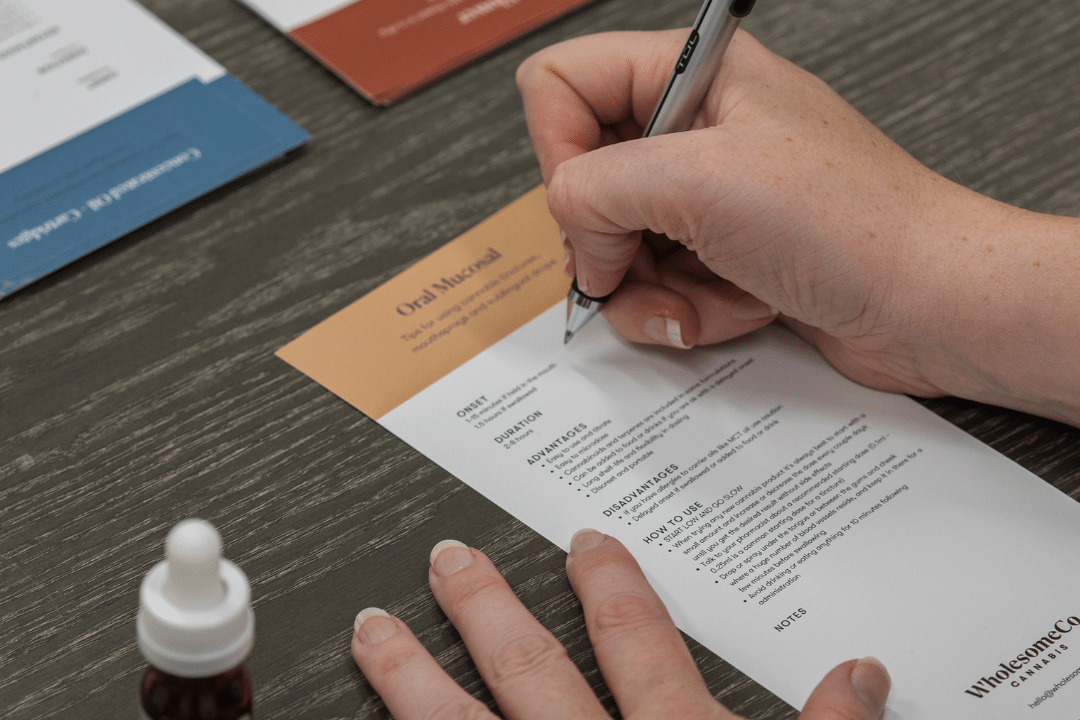Your bag is empty
You have probably heard all the hubbub about Delta 8 THC, some good and some not so good. What is the real deal when it comes to Delta 8? Why do some people swear by it while others are deeply concerned about its safety? Here are all the basics about Delta 8 THC, why some people prefer it, what it takes to consume it safely, and what its status is in the Beehive state.
Delta 8 Vs. Delta 9
Research indicates that Delta 8, or delta-8-tetrahydrocannabinol, can help with many of the same symptoms that regular Delta 9 THC can, including nausea, brain health, PTSD, insomnia, and even cancer. It also suggests Delta 8 THC works best in the gut. There is still a lot of research to do around this cannabinoid and a lot that researchers simply do not know. They do know, however, that Delta 8 binds to the endocannabinoid system in much the same way Delta 9 does.
In addition, many people claim that Delta 8, in the form of Delta 8 gummies, Delta 8 carts, and Delta 8 edibles, actually work a lot better for pain than Delta 9 THC. (1)
Delta 8 is endogenously produced in cannabis, meaning it is created internally via natural means and is also found naturally in hemp in very small amounts. It is known as an “analogue” of Delta 9 THC in that it is chemically similar, yet not exactly the same, as regular THC.
The biggest difference between Delta 8 and Delta 9 is strength. What makes Delta 8 so popular these days is that, while it produces the same health effects as Delta 9 THC, the feeling of getting “high” is much mellower, lighter, and some say more uplifting than Delta 9. This is why Delta 8 is sometimes referred to as “THC Light” or the “Diet Weed.”
Is Delta 8 Safe?
The answer is yes—and no. Let us explain.
The fact is that Delta 8 is a natural cannabinoid found in both cannabis and hemp. In that respect, it poses just as much risk as any other cannabinoid, i.e., little to none, and many benefits, as mentioned above.
The danger, unfortunately, lies in how some manufacturers are currently producing Delta 8 products for the mass market. They are doing so cheaply and without scruples, and at the expense of consumers.
Delta 8 today is mostly derived from hemp. In order to produce it, it must be synthetically created and activated using some forms of chemicals and chemical processes. Upstanding companies will naturally use the safest chemicals possible and in the least amount to maintain safety for their customers. Those who choose to skirt the law and cut costs for bigger profits will create sub-par and downright dangerous products using cheap chemicals. They will then sell these substandard products in unregulated markets. Unfortunately, the customers who visit these establishments are the ones who pay the price in the long run.
When considering purchasing Delta-8 in Utah, remember that it is safe when obtained from a licensed medical cannabis operator in the state. Utah regulations for medical cannabis ensure that Delta-8 products are manufactured by processors that meet state safety standards and are only sold at licensed pharmacies that are also required to comply with state safety standards.
Is Delta 8 Legal?
Again, this is a yes and no answer when it comes to this aspect of Delta 8 and the issue centers around Delta 8 extraction from hemp as well.
At the crux of the issue is also the Farm Bill passed by President Trump in 2018 which effectively legalized hemp growing and manufacturing across the country.
According to the Farm Bill, “(a)ll derivatives, extracts, cannabinoids, isomers, acids, salts, and salts of isomers, whether growing or not, with a delta-9 tetrahydrocannabinol concentration of not more than 0.3 percent” are legal. (5)
While the feds are vague on whether Delta 8 will eventually be categorized as a Schedule I Controlled Substance like Delta 9 still is, many states are clear as to where they stand on the issue.
Most state leaders (and of course producers) have taken the Farm Bill stipulations to mean that Delta 8 can be produced from hemp since the Bill only addresses Delta 9. However, roughly a dozen other states have said no when it comes to Delta 8 production, sales, and use in their state. (6)
Medical Cannabis in Utah Supports Over 40,000 Patients
There are reams of research, however, on the known, verified, and safety benefits of Delta 9 medical cannabis and CBD on many conditions, including as an antiemetic (to treat nausea), and for inflammatory conditions affecting the gut (IBS, Crohn’s, ulcerative colitis). That is why Utah pharmacies currently service over 40,000 registered patients, offering a variety of dosing options.
Some of those options include:
- Tincture
- Capsule
- Vape carts
- Transdermal applications
- Cannabis flower
- Gelatinous cubes
Note that edibles or using a flame are also illegal in the state of Utah.
The products that are legal can easily be purchased at Wholesome.co. and can be ready for pick up or delivery to your home as well. Wholesome.co also has Doctorate-level pharmacists ready and at hand to answer all of your questions about your unique health situation and how cannabis can help you.
Schedule a quick consultation and find out your medical cannabis options today. Most people are able to speak with a pharmacist within 24 hours. The call is free, and we are happy to help you!
References:
